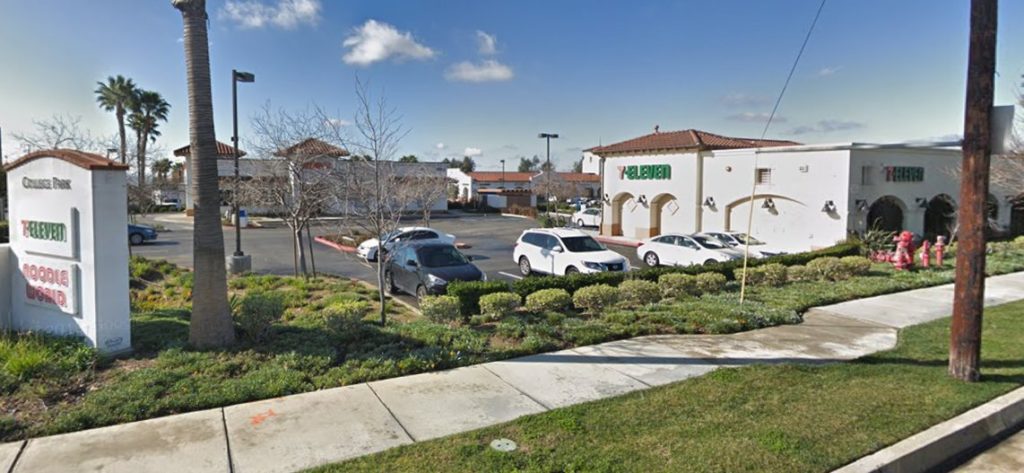Film director Roman Polanski fled the United States after learning a Los Angeles judge planned to renege on an earlier agreement and imprison him for sexually abusing a 13-year-old girl in 1977, a former prosecutor confirmed in testimony a decade ago, according to newly unsealed court documents.
Testimony by retired Deputy District Attorney Roger Gunson from a previously sealed transcript — and obtained late Sunday by The Associated Press — supports Polanski’s claim that he left the country for France on the eve of his sentencing in 1978 because he didn’t think he was being treated fairly in court.
The transcript largely verifies what was already widely known, with the Oscar-winning director long contending he was being mistreated by the legal system.
According to the transcript cited by the AP, Gunson said during 2010 grand jury proceedings that the judge overseeing the director’s case had broken a promise to sentence Polanski to time already served, and instead planned to send him to prison.
“The judge had promised him on two occasions … something that he reneged on,” Gunson said. “So it wasn’t surprising to me that, when he was told he was going to be sent off to state prison … that he could not or would not trust the judge.”
Polanski defense attorney Harland Braun said in 2017 that he believed the transcript would confirm a plea deal negotiated in 1978 calling for Polanski to be sentenced to time already served behind bars.
Braun maintained then that Polanski has already served more than enough time, including time he spent at a state prison in Chino in the late 1970s for a pre-sentencing diagnostic examination and also in jail and under house arrest in Switzerland in 2009 as Swiss authorities considered an extradition request.
It was unclear if the release of the transcript would have any impact on Polanski’s case. Braun could potentially petition a judge to formally sentence the director to time served without requiring him to be present, meaning he would no longer be considered a fugitive.
But similar requests have failed in the past, with prosecutors insisting Polanski return to the United States for sentencing.
The Los Angeles County District Attorney’s Office last week dropped its opposition to the release of the grand jury transcripts. In response, a state appeals court quickly ordered the documents to be unsealed.
“This case has been described by the courts as `one of the longest-running sagas in California criminal justice history,”‘ District Attorney George Gascón said last week. “For years, this office has fought the release of information that the victim and public have a right to know.”
Gascón said his office has “determined it to be in the interest of justice to agree to the unsealing of these transcripts” of Gunson’s closed-door testimony based on “careful consideration of the victim’s wishes, the unique and extraordinary circumstances that led to his conditional exam and my commitment to transparency and accountability for all in the justice system.”
In a ruling Wednesday ordering the release of the transcripts, the state 2nd District Court of Appeal ruled “there is no factual or legal basis for the conditional deposition transcript to remain sealed.” The appeals court ordered the trial court to grant the motion to unseal the documents.
The DA expressed his pleasure at the court’s order on Wednesday.
“We are pleased the appellate court agreed with both the victim and our office about the need for transparency,” Gascón said. “The court’s decision helped us move toward upholding our responsibility to tell the public the truth, and to listen to survivors. We hope it gives her a small measure of assurance that eventually, she can have some measure of closure in this decades-long litigation.”
In June 2017, the victim in the Polanski case appeared in a downtown Los Angeles courtroom to ask that the drawn-out criminal case against the fugitive Oscar-winning director come to an end.
“… I would implore you to consider taking action which can finally bring this matter to a close as an act of mercy to myself and my family,” Samantha Geimer told then-Superior Court Judge Scott Gordon.
The judge denied that request a little over two months later.
In his August 2017 ruling, Gordon wrote that Geimer’s testimony was “dramatic evidence of the long-lasting and traumatic effect these crimes, and defendant’s refusal to obey court orders and appear for sentencing, is having on her life.”
The judge cited a 1976 California appellate court panel’s ruling in noting that “a court may not dismiss a case merely because it would be in the victim’s best interest.”
In a statement posted Tuesday on Twitter shortly after the district attorney’s announcement about the transcripts, Geimer wrote, “I, more than most, appreciate the rights Marsy’s Law afforded victims of crime many years after my case. More importantly, our justice system demands that all who are accused, charged, or convicted of a crime must be treated fairly and their rights respected fully. The release of this testimony is a long overdue step in that direction. Justice must strive to find the truth in all cases.”
Geimer added that she was “deeply grateful to DA Gascón and all those in the DA’s Office who have demonstrated that, even in the face of certain criticism, the rule of law is more than simply words on paper to be used at the discretion of those who seek to benefit. The rule of law must be equitably applied to all.”
Polanski — an 88-year-old director, writer and producer who won an Oscar in 2002 for “The Pianist” — fled to his native France in 1978 before his sentencing. Southern California authorities tried for years to bring him back to America.







